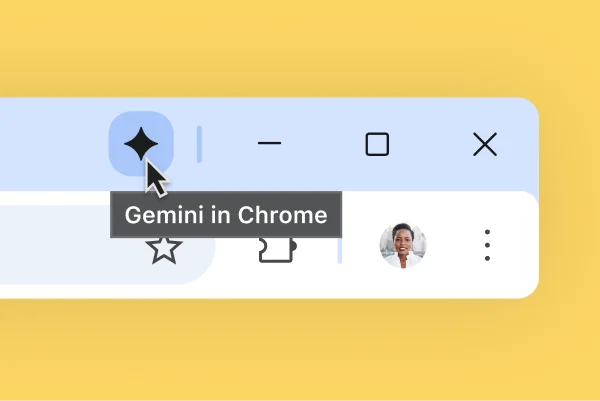Google Embeds Gemini AI Into Chrome: Browsing Gets Smarter

Introduction
Google has officially integrated its powerful Gemini AI directly into the Chrome browser for desktop users in the United States. This move brings advanced AI capabilities for real-time tab summarization, query generation, and information synthesis straight into the internet browsing experience, fundamentally changing how millions interact with the web[1].
Gemini AI Inside Chrome: How It Works
With this rollout, users can summon Gemini within Chrome to analyze open tabs, synthesize information, and provide concise answers or summaries while navigating the web. The feature is currently available in English for desktop users; mobile support is expected soon. This marks a shift from AI as an optional add-on to AI as an essential layer of daily digital life[1].
Industry Implications & Competitive Push
Google’s move places pressure on competitors like Microsoft Edge and Arc, forcing them to accelerate their own browser-based AI features. By embedding Gemini in Chrome—the world's most widely used browser—Google advances its AI ecosystem and expands user reach dramatically. The move signals a race among browser makers to offer not just speed and security, but intelligent on-page assistance and automation[1].
Privacy, Convenience, and User Control Debates
While early reception highlights the convenience and productivity boost, the integration raises new questions around privacy, data capture, and user control. Users and experts are debating how much browsing data the AI accesses, how it handles sensitive information in private tabs, and what safeguards are in place. Google will need to reassure both users and regulators about responsible AI deployment in one of the most widely used internet platforms[1].
Future Outlook and Expert Perspectives
Industry analysts believe this is a pivotal moment in browser history, merging information retrieval and AI reasoning. Experts predict a wave of innovations and deeper integrations to follow, potentially changing how web content is consumed, understood, and acted upon. "This fundamentally raises the value proposition of the browser," noted Wired, as competitors and regulators watch for potential implications regarding control, trust, and next-generation web experiences[1].
How Communities View Google Gemini Chrome Integration
Google’s announcement that Gemini AI is now built into Chrome has sparked animated debate on X/Twitter and Reddit, particularly in r/Chrome and r/artificial.
-
One cluster is highly enthusiastic, with @ai_daily and r/ChromePowerUsers praising the convenience, productivity boost, and seamless access to AI tools during research or work (~40%).
-
A second cluster, including @privacydev and r/privacy, raises concerns about user data access, privacy, and possible overreach, estimating that nearly 35% of conversation centers on trust and control.
-
Tech industry insiders and thought leaders, such as @benthompson, discuss the implications for competition, browser market share, and the AI arms race, making up approximately 15% of posts.
-
A smaller segment (~10%) voices skepticism about actual utility, wondering if average users will adopt the feature or see it as "bloat." Notable contributions from experts like @drchristine and security researcher Matthew Green add nuance.
Overall, sentiment is cautiously optimistic, but privacy, transparency, and AI controls remain hot topics.